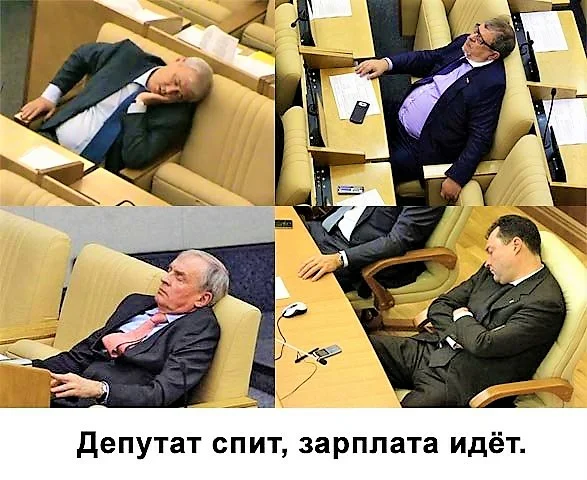While You Were Sleeping
Chapter 3:
Not Dead Yet
While You Were Sleeping
After the leaders of the Russian, Byelorussian, and Ukrainian Soviet Social Republics signed the USSR's death certificate (otherwise known as the Belovezha Accords), Komsmol'skaia pravda, the venerable central youth newspaper that was already well on its way to becoming a tabloid, published a cleverly-titled obituary: "Ia prosnulsia—zdras'te! Net sovsetskoi vlasti!" In English, that would be, "I woke up and--hello! Soviet power is gone!", but the original Russian is a catchy rhyme. It dates back to a popular saying from the 1960s, referring, among other things, to crossing the border into Poland by night train. Before 1991, it was merely ironic, or perhaps wishful thinking, but now it summed up the strangeness of the USSR's death by pen stroke. [1]
We discussed the "Rip Van Winkle" time travel trope in the previous chapter, and can see that its appeal after 1991 is undeniable: the entire country fell asleep, only to wake up to a different world. Where Soviet citizens once marched forward into the future, now they found themselves sleeping through history. The key question though, is not how they slept, but rather how they felt, and what they did, when they woke up. Where some were ecstatic, others hoped they were simply having a bad dream. Or wished they could go back to sleep until things changed again.
This metaphorical time travel is probably the only kind that does not defy the laws of conventional physics, since the technical passage of time is unaltered. It is a variation on future shock, except that the unease has nothing to do with developments in technology. Instead, the idea of either waking up in a new world or doggedly refusing to do so keeps the Soviet order alive through sheer force of will.
The common tropes surrounding the end of communism are primarily about motion. An obstacle to be removed, communism "fell" or "collapsed," as illustrated by two recurring images: people marching in the streets (forward motion) or statues toppled from their pedestals (downward motion). This was supposed to be the march of history, with the dismantling of the Berlin Wall as the visual representation of people's refusal to be stopped or contained. The Soviet Union came to an end was anticlimatic, but it was preceded by two unprecedentedly kinetic years.
To keep the Soviet Union alive, then, was anti-kinetic, a concerted effort to remain inert. One of America's most rabid anti-communists, William F. Buckley, Jr., inaugurated his National Review with a mission statement that the magazine would "stand athwart history, yelling Stop." Ironically, this is not a bad description of the imaginary Soviet Union in the years immediately following 1991, but with an important change of position. The people remaining in imaginary communism after its fall would be taking things lying down.
Notes
[1] Apparently, the original document has gone missing. Former Belarusian President Stanislav Shushkevich was told as much when he asked to see it in order to work on his memoirs (Tom Parfitt, "Document Proclaiming the Death of the Soviet Union Is Missing," The Daily Telegraph February 7, 2013. The Citizens of the USSR have not, to my knowledge, used this fact as evidence of the USSR's continued existence, which strikes me as a missed opportunity.

